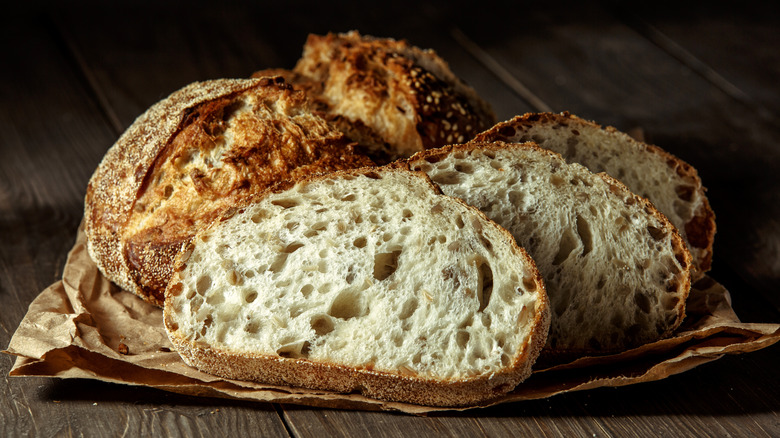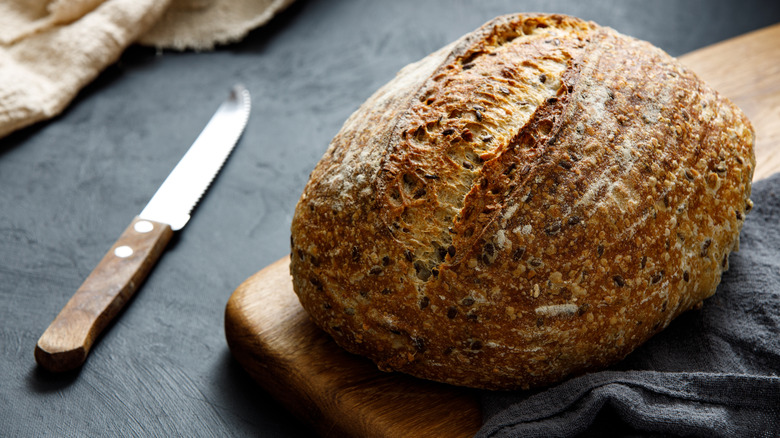Does Sourdough Bread Contain Probiotics?
No U.S. city is more closely associated with sourdough than San Francisco. The California city's wild-yeast-friendly microclimate and long-standing history (the bread became popular with miners during the Gold Rush of 1849) have contributed to the city's continued status as a sourdough capital, notes National Geographic. One of the bread's characteristic bacteria has even been named in the city's honor: Lactobacillus sanfranciscensis. Sourdough's history, however, goes back much farther than gold-obsessed forty-niners.
Ancient Egyptians were baking sourdough 3,000 years ago, per ScienceDirect. This was long before anyone knew that a mixture of flour and water would ferment with the aid of wild yeasts. These wild yeasts were the leavening agents that caused the bread to rise. Sourdough baking eventually made its way from Ancient Egypt to Ancient Greece and Rome, and the tradition has continued on, uninterrupted, into the modern era.
Sourdough recently had a moment when baking it at home became popular during the coronavirus pandemic, notes The Economist. However, the bread has never really gone out of style, thanks to both its distinctive taste and its wide array of health benefits. It's particularly noted, for example, for its contributions to a healthy gut microbiome, although there should be no confusion as to whether or not it contains probiotics.
The health benefits of sourdough bread
Sourdough in its initial starter form does possess gut-healthy probiotics, notes Consumer Reports, but these bacteria do not survive the baking process — this means sourdough does not provide probiotics. However, it should be noted that sourdough retains its gut-healthy prebiotics. Although not as well known, these compounds encourage healthy bacteria to flourish in the gut's microbiome, per The New York Times.
According to a 2021 study of sourdough published in the journal Microorganisms, the bread boasts many proven health benefits. Not only does it improve digestion, for example, but it also enhances our body's ability to absorb nutrients. It's true that sourdough lacks probiotics' gut-friendly yeasts and bacteria, but it still promotes a healthy gut biome. It has also been shown to benefit those suffering from gastrointestinal ailments like irritable bowel syndrome.
Sourdough shines in comparison to other breads, which are often made with baker's yeast rather than wild yeasts. This makes them less nutrient dense and harder to digest, per a 2019 study published in Nutrients. As Consumer Reports points out, this makes sourdough more palatable for those who are sensitive to gluten, as well as a healthier bread option.

